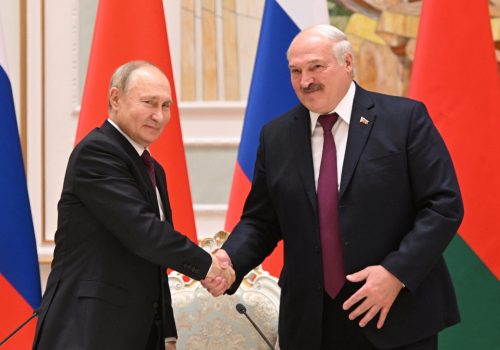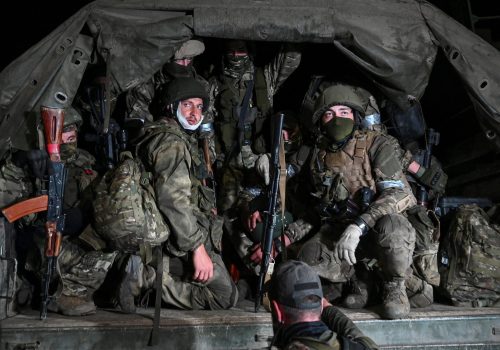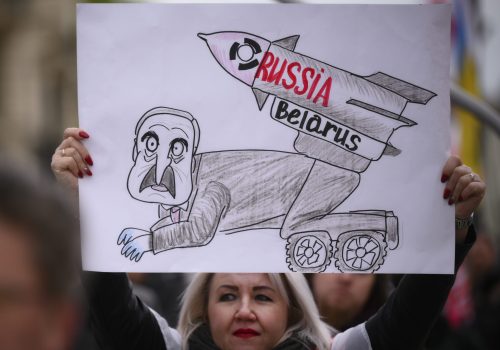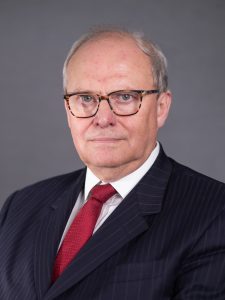The democratic revolution in Belarus has outlasted expectations despite mass detentions, torture of democratic activists, and crackdowns on independent media perpetrated by dictator Alyaksandr Lukashenka’s regime. Since demonstrations began in August, the United States and European Union have each condemned the state’s violent treatment of protestors while expanding sanctions against Lukashenka and his cronies. But with financial and security assistance from the Kremlin propping up the authoritarian regime, Congress and the incoming Biden administration must do more to support the Belarusian people in their struggle for freedom and democracy.
Ambassador John Herbst, director of the Atlantic Council’s Eurasia Center; Dr. Anders Åslund, resident senior fellow at the Eurasia Center; Franak Viačorka, nonresident fellow at the Eurasia Center and adviser to Belarusian opposition leader Sviatlana Tsikhanouskaya; and Dr. Michael Carpenter, nonresident senior fellow at the Eurasia Center and senior director of the Penn Biden Center for Diplomacy and Global Engagement, discuss how US policymakers should engage with the situation in Belarus. Melinda Haring, deputy director of the Eurasia Center, moderates.
spotlight
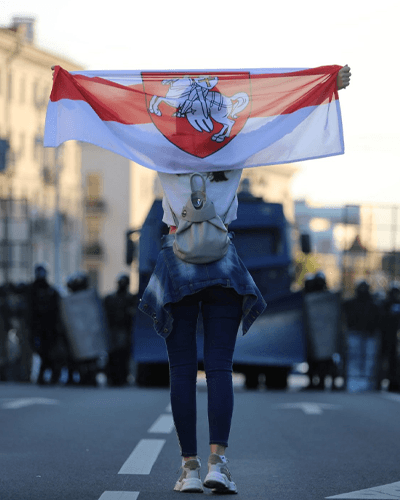
Belarus
Belarus’ August 2020 presidential election saw widespread protests and serious fraud allegations as President Lukashenka claimed victory against popular opposition candidate Sviatlana Tsikhanouskaya. Following a brutal crackdown against protestors by security forces, will Belarus begin its transition to democracy, or will Belarusians face further repression as Lukashenka’s rule falters?
RELATED experts

The Eurasia Center’s mission is to promote policies that strengthen stability, democratic values, and prosperity in Eurasia, from Eastern Europe in the West to the Caucasus, Russia, and Central Asia in the East.
